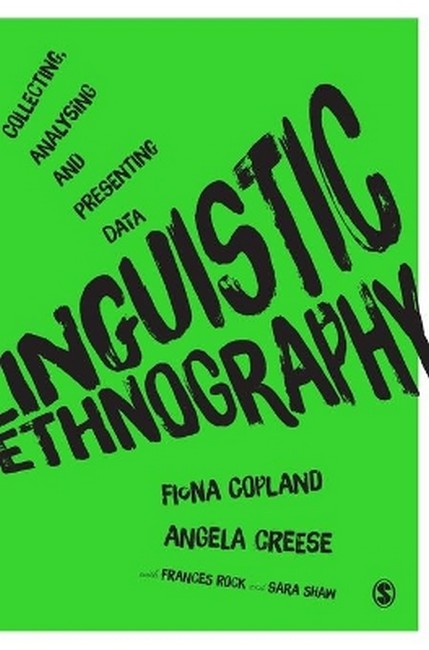Fiona Copland is a Senior Lecturer in the School of Languages and Social Sciences at Aston University, Birmingham where she is Director of CLERA (Centre for Language Education Research at Aston). Before working in higher education, she was an English language teacher in Nigeria, Hong Kong, Japan and the UK, where she also taught on a range of teacher education programmes. This background has influenced her research interests which include talk in pre-service teacher education conferences and teaching English to young learners, and she has published in these areas. Since attending a course in ethnography, language and communication jointly run by King's College University of London and the Institute of Education University of London, she has been an active member of the Linguistic Ethnography Forum, co-organising three conferences. At Aston, Fiona is the Programmes Director of MSc TESOL courses and teaches a range of post-graduate modules. She also supervises PhD students in the field of TESOL. Angela Creese is Professor of Educational Linguistics at the School of Education, University of Birmingham, and deputy director of the MOSAIC Centre for Research on Multilingualism. In the last ten years she has been funded to work in large multilingual research teams to research multilingualism. Her research interests are in linguistic ethnography, language ecologies, multilingualism in society and multilingual classroom pedagogy. Her publications include Heteroglossia as Practice and Pedagogy (with Adrian Blackledge, 2014, Springer); The Routledge handbook of Multilingualism (2012, with Marilyn Martin-Jones and Adrian Blackledge); Multilingualism: A Critical Perspective (with Adrian Blackledge, 2010, Continuum); Volume 9: Ecology of Language, Encyclopedia of Language and Education (2009); Teacher Collaboration and Talk in Multilingual Classrooms (2005) and Multilingual Classroom Ecologies (2003).
Request Academic Copy
Please copy the ISBN for submitting review copy form
Description
Ethnography and Language Linguistic Ethnography Data in Linguistic Ethnography Doing Research in Linguistic Ethnography: Building the Case Case study one: Reflexivity, voice and representation in linguistic ethnography Case study two: Researching feedback conferences in pre-service teacher training Case study three: Ethnography and the workplace Case study four: Ethnography, language and healthcare planning Practical Issues in Linguistic Ethnographic Research Empiricism, ethics and impact Transcription, translation and technology Writing up: genres, writer voice, audience Ways forward
This book uniquely draws readers into the world of the linguistic ethnographer and through a series of case studies each author coaxes us to walk alongside and by doing so challenges readers to critically reflect and engage with the research life-cycle on all its different levels. A refreshing approach! -- Frances Giampapa This is the book linguistic ethnography has been waiting for. It is a thoroughly engaging, richly informative and hugely persuasive achievement that should be essential reading on all research methods courses. Aspiring linguistic ethnographers should ensure that the book is never far from their reach -- Keith Richards This engaging and refreshingly jargon-free book provides the practical details that trainee researchers really need to know. It should be compulsory reading on research methods courses across the humanities and social sciences. -- Dr. Janet Maybin This book will be indispensable for anyone interested in seeing the social world through a linguistic ethnographic lens. Written in a highly accessible style, it offers a comprehensive guide to producing rich ethnographic accounts from field notes, audio recorded interactions, written documents and other materials. The book is packed with concrete examples and illustrative case studies reflecting the breadth and depth of an exciting new space for cutting edge research. -- Dr Jeff Bezemer

